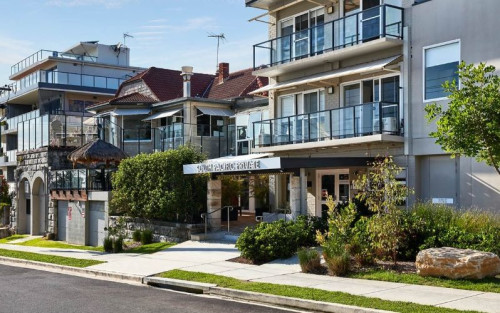
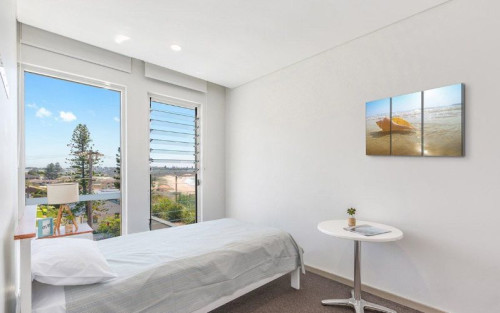
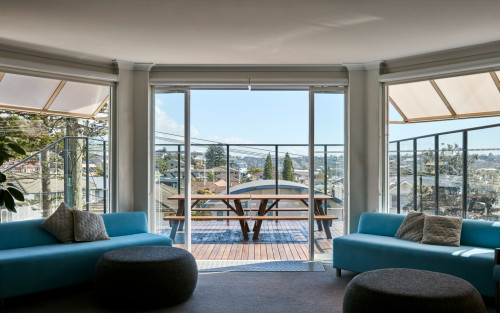

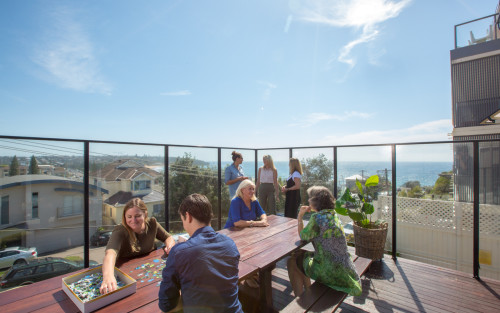




South Pacific Private
Verified Center
This provider's information has been quality-checked by Recovery.com's Research Team for accuracy and completeness, including center verification through appropriate third-party organizations.
Treatment Focus
This center treats substance use disorders and mental health conditions. You'll receive individualized care catered to your unique situation and diagnosis, learn practical skills for recovery, and make new connections in a restorative environment.
Primary Level of Care
Offering intensive care with 24/7 monitoring, residential treatment is typically 30 days and can cover multiple levels of care. Length can range from 14 to 90 days typically.
Treatment Focus
This center treats substance use disorders and mental health conditions. You'll receive individualized care catered to your unique situation and diagnosis, learn practical skills for recovery, and make new connections in a restorative environment.
Primary Level of Care
Offering intensive care with 24/7 monitoring, residential treatment is typically 30 days and can cover multiple levels of care. Length can range from 14 to 90 days typically.
Provider's Policy
South Pacific Private is contracted with most major health funds and the DVA, so clients with private health insurance are able to claim for their treatment under the terms of their health fund agreement with zero gap payment. This is subject to individual plan terms; excess may apply. Clients without Australian Medicare cover may have gap payments.
South Pacific Private
South Pacific Private
About South Pacific Private
Opening in 1993, South Pacific Private became Australia’s first treatment centre equipped to treat addiction, disordered eating, trauma and mental health conditions simultaneously. Their integrated, holistic program incorporates loved ones through the healing process. Their 54-bed private center offers a high level of clinical expertise. Each client is welcomed by a full team of specialists providing compassionate medical detox, specialist nursing care, psychiatric assessment and treatment, counselling, psychotherapy, group therapy, educational lectures, and ongoing case management.
South Pacific Private is contracted with most major health funds and the DVA, so clients with private health insurance are able to claim for their treatment under the terms of their health fund agreement with zero gap payment.
3-Week Inpatient Program
Meeting clients where they are, South Pacific Private offers an intensive 3-week inpatient program to immerse clients in a 24/7 therapeutic environment. In the first 3 days, clients undergo a fully supervised medical detox if necessary. They are an abstinence-based facility and utilise the 12-Step program to assist with recovery from addiction. South Pacific Private provides group psychotherapy, educational lectures, and community activities. Their team of experienced mental health professionals addresses underlying depression, anxiety, trauma, and other related mental health concerns.
During the inpatient period, clients may be recommended to participate in South Pacific Private’s bespoke Changes Program, which involves five days dedicated to identifying and addressing childhood experiences and the associated developmental trauma. Their family program invites loved ones to join treatment for 4 days to develop skills and strategies focused on setting clients and their families up for long-term connection and healing.
Transitions Program
South Pacific Private’s Transitions Program serves as a 2-week day treatment program. This supports clients as they transition from inpatient treatment back into their families and communities. The Transitions Program aims to consolidate and extend skills and progress gained in the inpatient program by assisting clients with integrating their new knowledge, skills, and awareness into their daily lives. Sessions include education on relapse prevention, triggers and boundaries, managing family and work challenges, processing grief and loss, setting goals, practicing mindfulness, and continued support with the 12-Step program..
Clients can attend the Transitions Program while living at Beachwood Supported Living, their residential sober living home, or they can participate in the program virtually.
Continuing Care and Beachside Recovery
South Pacific Private’s continuing care includes various day and evening programs and workshops for continued support. Continuing care includes sessions focusing on relationships in recovery, relapse prevention, trauma recovery, managing post-traumatic stress disorder (PTSD), recognising triggers, mindfulness and well-being, and building resilience.
Located just a few minutes walk from Curl Curl beach on Sydney’s Northern Beaches, South Pacific Private’s facility has unobstructed ocean views. Clients are invited to beach walk and wade. The interiors and gardens provide safe spaces for healing and renewal.

Highlights from the Center
Highlights
These highlights are provided by and paid for by the center.
Insurance Accepted
Holistic Approach
Medically Assisted Detox
Trauma Treatment
Center Overview
Treatment Focus
This center treats substance use disorders and mental health conditions. You'll receive individualized care catered to your unique situation and diagnosis, learn practical skills for recovery, and make new connections in a restorative environment.
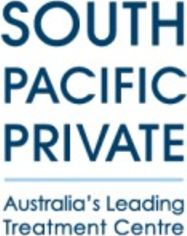
South Pacific Private
Insurance Accepted
Cash Pay Rates
Estimated Cash Pay Rate
Center pricing can vary based on program and length of stay. Contact the center for more information. Recovery.com strives for price transparency so you can make an informed decision.
Recovery.com Verified Listing
Recovery.com verified that the name, location, contact information and license to operate for this treatment provider are valid and up-to-date.

Licensed by NSW Government Health
Recovery.com is an independent, third-party mental health resource. Verification does not imply endorsement and does not guarantee the quality of treatment services.
Meet Your Care Team

Nicky Christie
Director of Nursing
RN

Ed Wheeler
Chef

Dr Taggart Lidbury
Psychiatrist
B Med, MPH, FRANZCP

Dr Laura Cotiga
Psychiatrist
MBBS, MD, FRANZCP
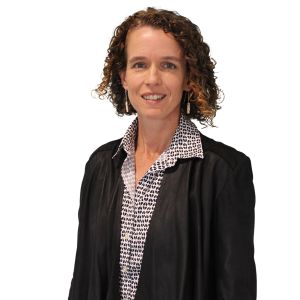
Dr Kate Beardmore
General Practitioner
MBBS, RACGP

Dr Darren Lee
Psychiatrist
MBBS BMed Sci FRANZCP FAChAM
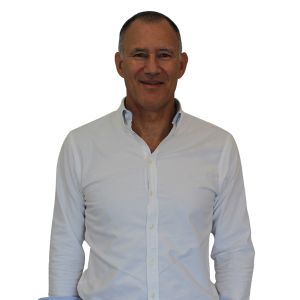
Dr Bruce Lachter
Psychiatrist
FRANZCP

Dr Ashwini Padhi
Medical Superintendent
MBBS,FRANZCP, MRCPsych




Your Care Options
Specializations
Anxiety
Anxiety is a common mental health condition that can include excessive worry, panic attacks, physical tension, and increased blood pressure.
Depression
Symptoms of depression may include fatigue, a sense of numbness, and loss of interest in activities. This condition can range from mild to severe.
Drug Addiction
Drug addiction is the excessive and repetitive use of substances, despite harmful consequences to a person's life, health, and relationships.
Trauma
Some traumatic events are so disturbing that they cause long-term mental health problems. Those ongoing issues can also be referred to as "trauma."
Holistic
A non-medicinal, wellness-focused approach that aims to align the mind, body, and spirit for deep and lasting healing.
Sex Addiction
Compulsively seeking out sex can easily become a problem. This addiction is detrimental to relationships, physical health, and self-esteem.
Alcohol
Using alcohol as a coping mechanism, or drinking excessively throughout the week, signals an alcohol use disorder.
Who We Treat
Veterans
Patients who completed active military duty receive specialized treatment focused on trauma, grief, loss, and finding a new work-life balance.
Men and Women
Men and women attend treatment for addiction in a co-ed setting, going to therapy groups together to share experiences, struggles, and successes.
Co-Occurring Disorders
A person with multiple mental health diagnoses, such as addiction and depression, has co-occurring disorders also called dual diagnosis.
Young Adults
Emerging adults ages 18-25 receive treatment catered to the unique challenges of early adulthood, like college, risky behaviors, and vocational struggles.
Midlife Adults
For adults ages 40+, treatment shifts to focus on the unique challenges, blocks, and risk factors of their age group, and unites peers in a similar community.
Mild Disabilities
Adults with mild physical or intellectual disabilities receive treatment catered to their specific needs in a safe and clinically supportive environment.
Older Adults
Addiction and mental health treatment caters to adults 55+ and the age-specific challenges that can come with recovery, wellness, and overall happiness.
Treatment Services
Transitional Living
After rehab, some people stay in a transitional living situation before returning home. These programs offer structure, education, and community support.
Residential
In a residential rehab program, patients live onsite, with access to daily treatment and 24-hour care. An average stay is 30-90 days.
Outpatient
During outpatient rehab, patients attend a structured treatment program while continuing to live at home.
Day Treatment
In a PHP, patients live at home but follow an intensive schedule of treatment. Most programs require you to be on-site for about 40 hours per week.
Intensive Family Program
Some rehabs offer intensive programs for loved ones. Group and individual therapy sessions help everyone heal, and improve family dynamics.
Sober Living
These structured living environments help people transition out of rehab. Residents have more freedom than they do during rehab, but still follow certain rules.
Intensive Inpatient
The highest level of care, medically managed intensive inpatient services provides 24-hour nursing and physician care.
Approaches
Twelve Step
Incorporating spirituality, community, and responsibility, 12-Step philosophies prioritize the guidance of a Higher Power and a continuation of 12-Step practices.
Holistic
A non-medicinal, wellness-focused approach that aims to align the mind, body, and spirit for deep and lasting healing.
Therapies
Spiritual Care
Tending to spiritual health helps treatment become more effective, allowing patients to better cope with their emotions and rebuild their spiritual wellbeing.
1-on-1 Counseling
Patient and therapist meet 1-on-1 to work through difficult emotions and behavioral challenges in a personal, private setting.
Family Therapy
Family therapy addresses group dynamics within a family system, with a focus on improving communication and interrupting unhealthy relationship patterns.
Twelve Step Facilitation
12-Step groups offer a framework for addiction recovery. Members commit to a higher power, recognize their issues, and support each other in the healing process.
Psychoeducation
This method combines treatment with education, teaching patients about different paths toward recovery. This empowers them to make more effective decisions.
Art Therapy
Visual art invites patients to examine the emotions within their work, focusing on the process of creativity and its gentle therapeutic power.
Conditions We Treat
Post Traumatic Stress Disorder
PTSD is a long-term mental health issue caused by a disturbing event or events. Symptoms include anxiety, dissociation, flashbacks, and intrusive thoughts.
Anxiety
Anxiety is a common mental health condition that can include excessive worry, panic attacks, physical tension, and increased blood pressure.
Depression
Symptoms of depression may include fatigue, a sense of numbness, and loss of interest in activities. This condition can range from mild to severe.
Grief and Loss
Grief is a natural reaction to loss, but severe grief can interfere with your ability to function. You can get treatment for this condition.
Codependency
Codependency is a pattern of emotional dependence and controlling behavior. It's most common among people with addicted loved ones.
Obsessive Compulsive Disorder (OCD)
OCD is characterized by intrusive and distressing thoughts that drive repetitive behaviors. This pattern disrupts daily life and relationships.
Pornography Addiction
A person with a porn addiction is emotionally dependent on pornography to the point that it interferes with their daily life and relationships.
Gambling
Excessive, repetitive gambling causes financial and interpersonal problems. This addiction can interfere with work, friendships, and familial relationships.
Internet Addiction
Internet addiction is common among children teens. This compulsive disorder can damage relationships, school performance, sleep habits, and physical health.
Substances We Treat
Cocaine
Cocaine is a stimulant with euphoric effects. Agitation, muscle ticks, psychosis, and heart issues are common symptoms of cocaine abuse.
Prescription Drugs
It's possible to abuse any drug, even prescribed ones. If you crave a medication, or regularly take it more than directed, you may have an addiction.
Benzodiazepines
Benzodiazepines are prescribed to treat anxiety and sleep issues. They are highly habit forming, and their abuse can cause mood changes and poor judgement.
Ecstasy
Ecstasy is a stimulant that causes intense euphoria and heightened awareness. Abuse of this drug can trigger depression, insomnia, and memory problems.
Co-Occurring Disorders
A person with multiple mental health diagnoses, such as addiction and depression, has co-occurring disorders also called dual diagnosis.
Drug Addiction
Drug addiction is the excessive and repetitive use of substances, despite harmful consequences to a person's life, health, and relationships.
Chronic Relapse
Consistent relapse occurs repeatedly, after partial recovery from addiction. This condition requires long-term treatment.
Heroin
Heroin is a highly addictive and illegal opioid. It can cause insomnia, collapsed veins, heart issues, and additional mental health issues.
Languages
Aftercare
Care Designed for Your Needs
Personal Amenities
Amenities
Special Considerations
Healthy Meals are provided
Great food meets great treatment, with providers serving healthy meals to restore nutrition, wellbeing, and health.
Activities
Yoga
Yoga is both a physical and spiritual practice. It includes a flow of movement, breathing techniques, and meditation.

Learn More About the Center
About South Pacific Private
Read about their treatment approach and commitment to comprehensive care.
Seeking Treatment for a Loved One
See resources for those trying to find treatment for a loved one.
Their Programs
Explore their varying levels of care that meet clients where they are on their recovery journey.
Fees and Payments
Learn more about South Pacific Private’s private health insurance and out-of-pocket payment options.





